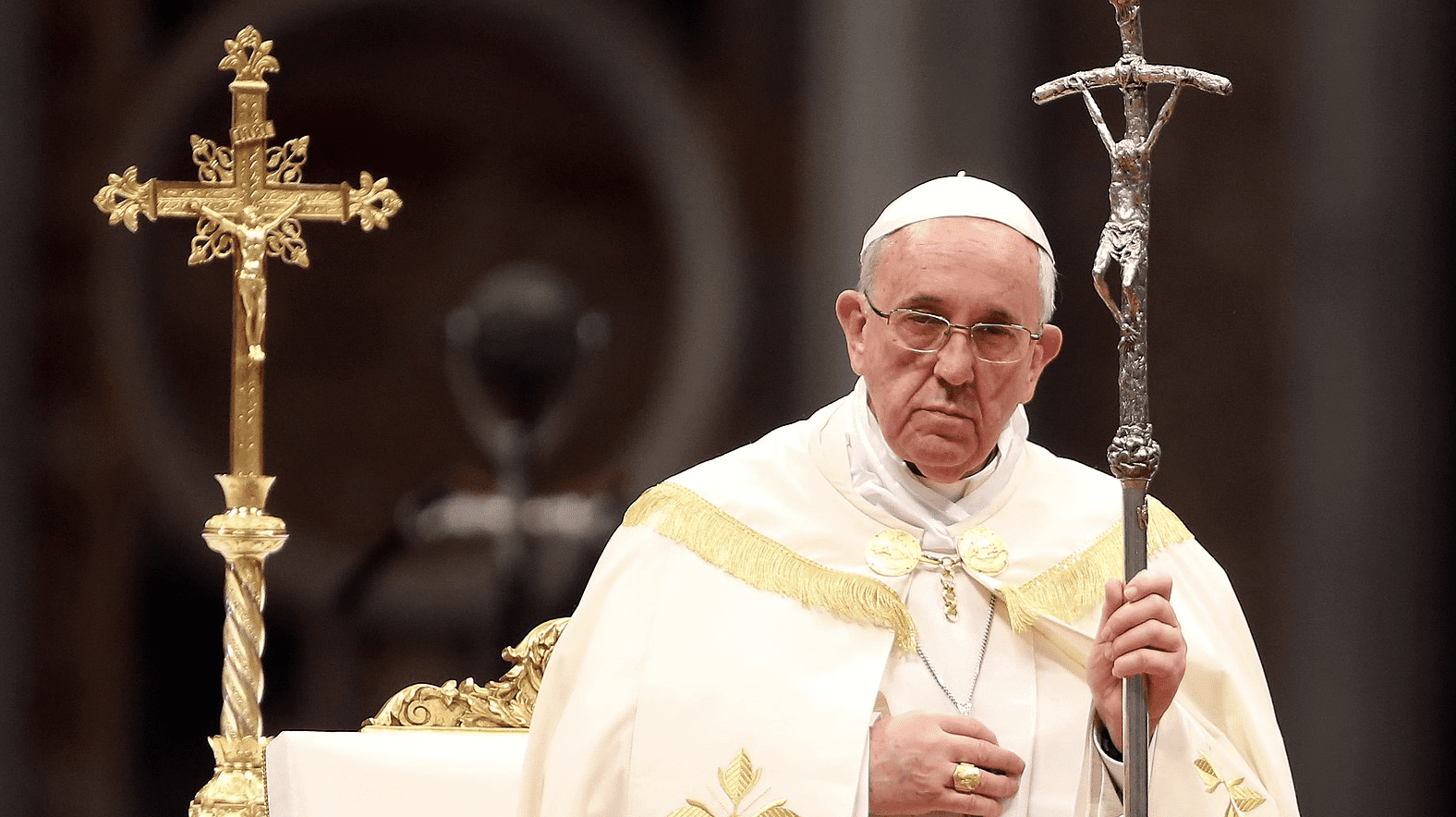
Speculation is rife that Pope Francis might soon relinquish the papacy. Despite repeatedly stressing he has no such plans, frail health, his recent naming of 20 new cardinals, as well as a Sunday homily in which he praised a 13th-century pontiff’s humility for resigning, potentially signal otherwise.
The announcement of a Sunday papal visit to the city L’Aquila provided more fuel to that speculation. The city—largely destroyed by a 2009 earthquake that killed 305 people and is currently being rebuilt—holds highly symbolic value. It is the burial place of Celestine V, who resigned as pope in 1294 after only five months, returning to a hermit’s life.
Francis’ predecessor, Benedict XVI, who in 2013 became the first pontiff in about 600 years to resign of his own accord, visited L’Aquila four years before stepping down. In the past, Francis praised Benedict for his courage in making that decision.
Pope Francis’ homily during Sunday Mass on a square in front of the basilica of Collemaggio in L’Aquila, contained a reference to a passage in Dante’s Divine Comedy; in it, the Italian epic poet ridicules Celestine for cowardice in abdicating, terming it “the Great Refusal.”
Francis, who is increasingly wheelchair-bound due to ongoing osteoarthritis of the knee and sciatica, said that by relinquishing that power, Celestine had instead found favor with God as he “humbled himself.”
“In the eyes of men, the humble are seen as weak and losers, but in reality, they are the real winners because they are the only ones who trust completely in the Lord and know His will,” the 85-year-old pope said. “Humility does not consist in devaluing oneself, but rather in that healthy realism that makes us recognise our potential and also our misery,” he added.
It is worthwhile to point out the significance of Francis’ mention of “healthy realism,” as he had previously suggested that resignation should be an acceptable option for pontiffs who no longer feel up to the task.
Yet concurrently, Francis persistently dismissed rumors that he has plans to resign any time soon, insisting that “it never entered my mind.” He did likewise during his brief sojourn in L’Aquila, instead delivering a message of faith and hope to citizens who continue to rebuild their city after the deadly quake.
The papal visit came one day after Pope Francis had ceremonially appointed 20 new bishops to cardinalship, making it the eighth time since the start of his papacy in 2013 that he had named new cardinals.
During the ceremony, known as a consistory, Francis told his new cardinals to show concern for ordinary people despite their high rank which will bring them into contact with the powerful of the earth.
Sixteen of these twenty would be eligible for participation in the conclave, when the moment comes to pick Francis’s successor—according to Vatican rules, all who vote must be under 80.
Francis has now personally picked 83 out of the 132 cardinals qualified to elect a new pope, nearly two-thirds of the total, which is the percentage needed for any proposed name to pass.
Francis’ coterie comes from all corners of the globe, and is known to largely agree with his vision of a more ‘progressive’ and ‘inclusive’ Church.
